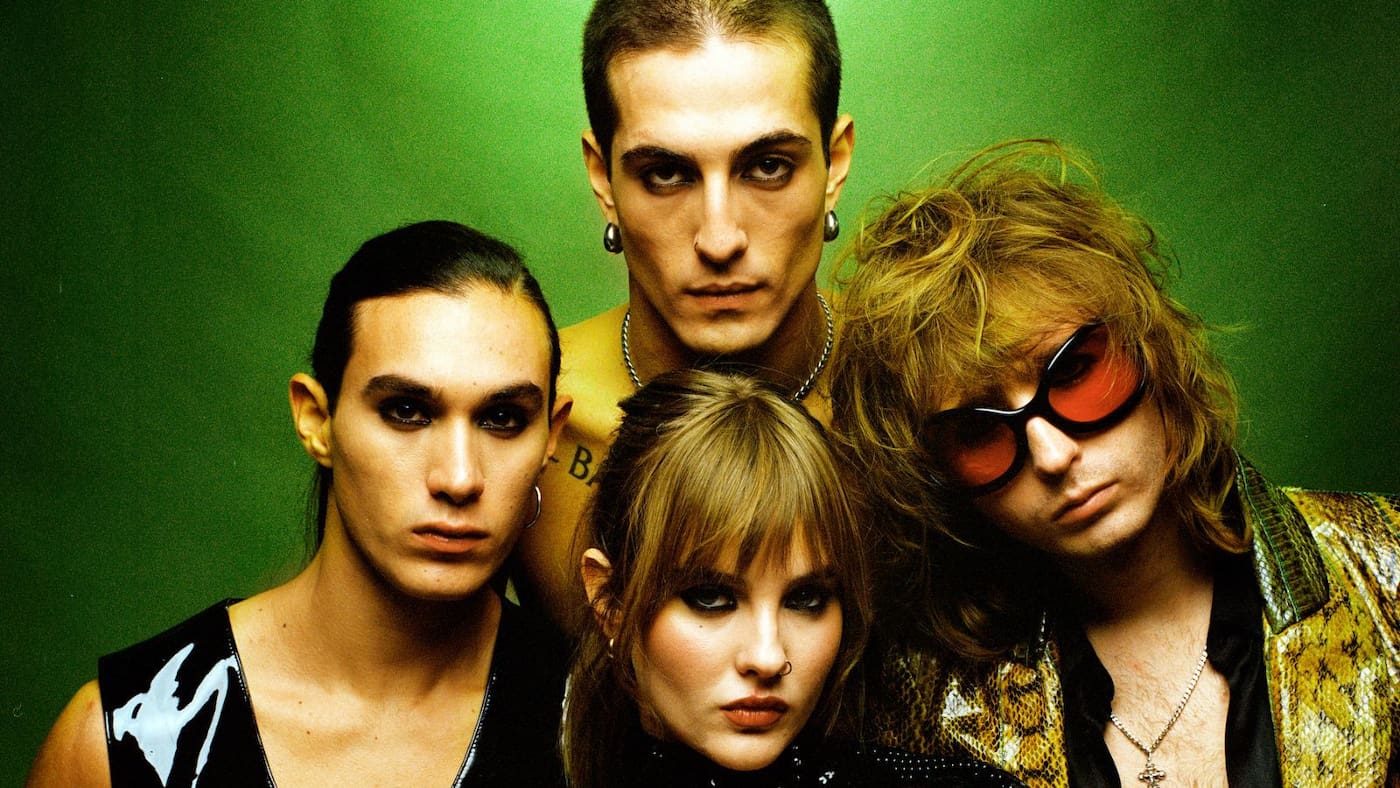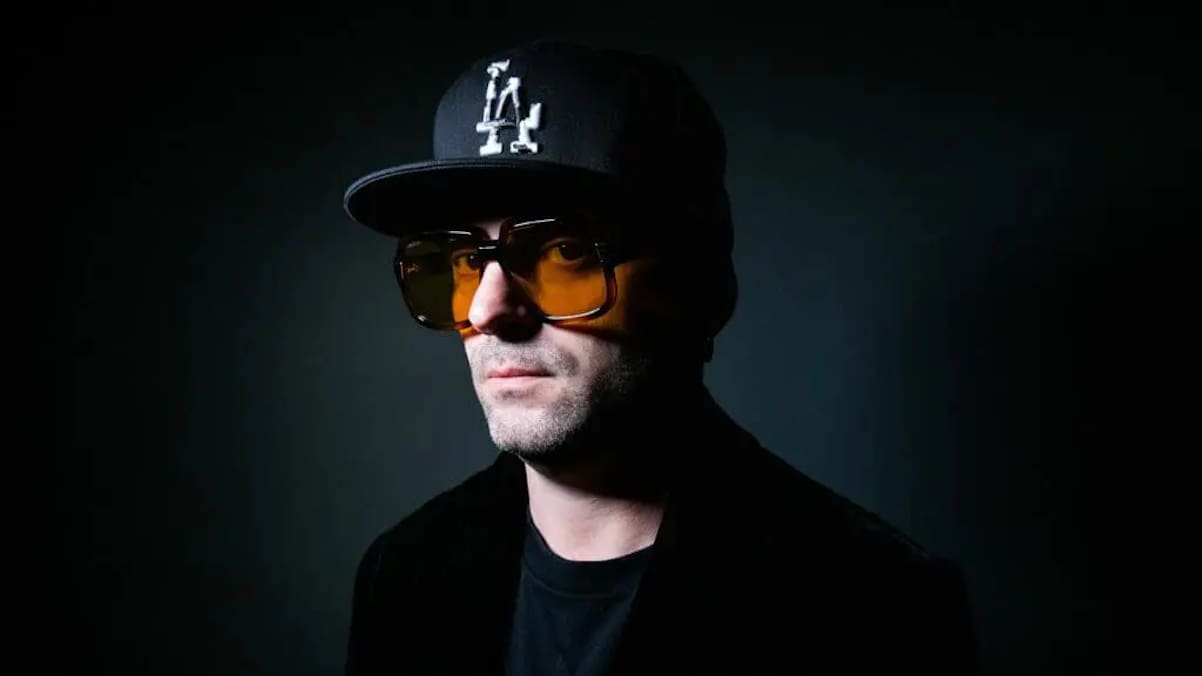Why Lebanon Still Is the Forefront of the Music Industry in the Middle East
Despite its multi-layered crises of the last three years, the country still acts as the cultural engine of the MENA region, with a very fertile ground for music. With the contribution of artists, promoters, club managers, and executives of streaming platforms, we analyse the perspectives of the Lebanese music system viewed as the first line of a market of over 400 hundred million people – the full potential of which is still to be explored

A night at the Ballroom Blitz (ph. Firas Haidar)
Fall 2019: from Hong Kong to Santiago, a spontaneous and simultaneous wave of mass protests shakes half of the world. The wind of people’s anger passes by Lebanon, too. From the capital city, Beirut, to mountain villages and remote provinces, the small Middle Eastern country sees a proliferation of non-violent demonstrations. Quite surprisingly, all the different religious communities march side by side: Christians, Muslims (Sunnis and Shiites), Druze.
It is a product of the Arab springs. After decades of misgovernment, endemic corruption, and corporatism of the political élite, the introduction of new taxes and the start of hyperinflation break the dam of a widespread frustration that used to be controlled with the small advantages of a generalized political clientelism. People demand not only the government’s resignation (which happens) but also the impossible: the removal of the entire political class (killon yaane killon, “all of them means all of them”, is among the most frequent slogans) and the end of the rigid religion-based system with which – by constitution – institutional roles are distributed in Lebanon. They quickly call it thawra, “revolution”.
Three years later, Lebanon still faces the same problems. Well, even more than before. The “revolution” did not expect the events of year 2020. First the Covid emergency, then the explosion of August 4th (over 200 dead, 7.000 wounded, damages for billions of dollars) accelerated what the World Bank describes as one of the worst economic crises of the last 150 years. But the very same people who led the country to ruin are still sitting in the parliament.

Beirut’s clubbing scene
The premises about the socio-economic situation are necessary to understand something quite exceptional. Despite everything, and faithfully to its traditional cosmopolitanism, Lebanon still is the Arab country with the best context for the development of cultural and musical projects, also business-wise.
People still remember Beirut’s legendary nightlife during that golden (but highly idealized) era that was the Lebanese 60s. Years of economic boom and abundance: but they were already bearing the seeds of that blind violence that would explode in 1975 and go on through different phases for fifteen years.
After the end of the war, the nightlife of the capital city restarted with the same liveliness, this time specializing in electronic music. «It all started in 1994 with the iconic B018, that’s still existing», says Moe Choucair, DJ and co-founder of The Ballroom Blitz, a club that opened in 2018 and quickly became one of Beirut’s most popular. «But even during the 70s and 80s there were house parties peppered all over Beirut. People used to throw parties in their bunkers, when rockets were fired above their heads». Its success paved the way for a blooming of clubs that would be able to compete with the ones in Europe quality-wise and, especially during the last ten years, would put Beirut on the maps of the international clubbing scene.
Adjacent to the port, the Karantina district (where all the main clubs of the city are) was among the more heavily affected by the 2020 explosion. The Ballroom Blitz did not show signs of sever structural damages, luckily. «We immediately opened our doors to let artists produce and rehearse. We also collected funds for those in need. After that we reopened with a low profile, hiring local artists. The club got full anyway». Even with ticket prices skyrocketing because of inflation, people just felt like rediscover a sense of community and free expression. It is a social function that has always characterised clubs, «safe spaces where – if the management is good – there is no discrimination in terms of sexuality, ethnicity, social class, religion… all of that is put aside».
We have a vast market in the Arab world of 450 million people of which less than 5% is tapped
Eddy Maroun, CEO at Anghami
Anghami’s success
Clubs are not the only musical excellence “made in Lebanon”. Founded in the Lebanese capital in 2012, the streaming platform Anghami has always been leading the market in the MENA region. It has a significant competitive advantage even against Spotify, that landed in the region only in 2018. A few figures: 73 million users, a market share of 58%, a catalogue of 57 million songs, offices in four countries (Lebanon, Egypt, Saudi Arabia, UAE).
Since the beginning, the explicit mission of the platform was the exploitation of the repertoire of Arab music in parallel with the availability of the international catalogue. Such “glocal” strategy certainly contributed to its positioning. «Anghami is a global success story built on localization», confirms Eddy Maroun, co-founder and CEO of the company. «Our focus will always be around Arabs and Arab culture, as we see a large gap in the Arab content creation vs. demand. Our data showed astonishing numbers where Arab music represents 1% of our catalogue, while consumption hovers around 60%».
Like many other platforms, today Anghami is also going through a phase of transformation. It is no longer just an app of music streaming but «a fully integrated entertainment platform including podcasts, live radios, audio books, live concerts and videos». Even more: with the recent acquisition of the promoter Spotlight and the launch in Riyadh of the itinerant project Anghami Lab (a venue with «a lounge, stage, and a studio where local creators come together to experiment by co-creating music»), the company is stepping into the world of live events and creating new opportunities for local artists.
2021 saw important evolutions for Anghami: the headquarters moved from Beirut to Abu Dhabi and the company got listed on NASDAQ. It is the first time that an Arab tech company achieves that goal. «The whole reason we undertook this is to have a laser focus on growth», says Maroun. Then he touches a crucial point: «We have a vast market in the Arab world of 450 million people. But less than 5% of it is tapped».

Obstacles and opportunities for artists in Lebanon
If the music market has wide possibilities of growth in the MENA region, you could not say the same about the opportunities of internationalization for local artists. They still have to face huge obstacles if they want to perform in Europe or elsewhere.
«The biggest challenge for Lebanese artists is to get the funding and the visas», says Anthony Semaan, co-founder of Beirut Jam Sessions. His organization offers local musicians a network of events where to perform, sometimes facilitating them in planning tours in Europe and collaborating with international artists. «The funding is almost secondary. If you do a bit of money management, you can work out a way to save money and organize a few shows». Choucair confirms: «The big problem is the visa because it requires a vast documentation, including your financial papers. That’s very discouraging: even if you do get the visa, you won’t feel like doing it again».
A good way to avoid such obstacles is the collaboration with cultural institutions. «European visas can be facilitated by cultural institutions such as Goethe-Institut or Institut Français. A letter signed by them is better than one signed by a club», says Choucair. Beirut & Beyond International Music Festival (BBIMF), born in 2013 in partnership with Oslo World Festival and the Norwegian Ministry of Foreign Affairs, focuses on such synergies. «We’ve always worked towards helping artists from MENA expand their careers beyond the region. This was the main idea behind BBIMF Tours, a program that started in 2013», says Yara Mrad, program manager at BBIMF. «We’ve recently started a partnership with the cultural center Prozess to send rising artists from MENA to Bern, Switzerland, for one-month residencies to develop their projects and work on their music».
For now, the easiest path is the consolidation of the music system on a regional level. «Something we’ve been focusing on a lot these past few months is strengthening our bond with professionals from MENA», says Mrad. «By doing so, we share resources and operate as a regional unit rather than small individual ones. That way we’ll make the development process faster and long-lasting». Semaan says the same: «You should look at the Middle East as one huge country and play around with it. You can live in Lebanon and work in Cairo or Dubai. Distances are not too long and flights are not too expensive. If artists promote themselves in Egypt effectively and have a concert there with 5.000 people, that’s more than what they would get from ten small shows in Lebanon».
You should look at the Middle East as one huge country and play around with it
Anthony Semaan, Beirut Jam Sessions
Is Arab Pop the next global wave?
The best example of such an approach is the one put in practice by “pan-Arab” popstar Myriam Fares. «I never had a specific target when it comes to markets. I like to diversify», she explains. «I sing in all the Arab accents and musical patterns: Lebanese, Egyptian, Iraqi, Moroccan, Berber, Gulf Arabic, Kurdish… My goal is to fuse the Arab people together, as well as to let foreign people get closer to Arab ones».
The Lebanese singer has been protagonist of an unprecedented success for the Arab world. Her song Goumi was featured in over 6.4 million videos – amassing 8.4 billion views overall – only on TikTok, according to the platform. Originally released in 2018, this year the single saw a second life when the singer decided to relaunch it for a dance challenge on Instagram. Ironically enough, she did not have a TikTok account. To her own surprise, she quickly became a viral phenomenon, also crossing the borders of the Arab world.
But do not consider Myriam Fares a one-hit-wonder of social media. With her twenty-year career and even a biographical documentary available on Netflix, Myriam Fares is already among the big names of Arab pop. Now, with Tukoh Taka, the FIFA World Cup anthem alongside Nicky Minaj and Maluma, it is time for her to level up globally.
After the Latin and Korean waves, will Arab pop be the next big thing of the global mainstream? «It took Latin songs a lot of time to deeply spread over the world. Arabic songs will spread the same way», she says. «I always believed that music is an international language that has no limits. We do not have to understand the language to love and connect with a song. Since it is not about language, it is about the openness of the West towards the culture of the East. Because of social media, people in the West now have a glimpse of the Eastern culture and of our music. This helps Arab songs to spread around the globe».

Lebanon between stalemate and transformation
So the future looks bright for the Middle Eastern music industry. But Lebanon’s past and present hardly challenge all the people we spoke with. «The fact that I’m no longer based in Lebanon speaks for itself. Both my partner and I left the country in the past 12 months», sadly says Semaan, who lives in London now. Fares adds: «What’s happening to my beautiful country has affected my work. I am an artist and I must be in a healthy environment that help me be creative. The events of the last years made me postpone a lot of my songs for a long period of time».
If you want to see the glass as half full, let’s say that every crisis bears opportunities of innovation. Evolution becomes a strategy of survival. «We morphed into an entity that is focused on helping and supporting the local music scene through a series of development programs such as workshops, webinars, residencies», says Yara Mrad of BBIMF. Anghami’s Eddy Maroun cautiously observes: «Lebanon is witnessing economic challenges. We are at a stage where we need a larger and more robust ecosystem for our future plans. Hence the decision to move our headquarter to Abu Dhabi. Our state-of-the-art offices in Lebanon remain a prominent hub. We focus our efforts more than ever on empowering the exceptionally gifted community of Lebanese artists».
Sure enough, there is a lot to do to rebuild (literally, too) what the last three years destroyed. Maybe with more realistic political goals this time. The thawra of Lebanon’s “hot fall” of 2019 is just a blurred memory. «What’s left is frustration», says Choucair. «But there’s a glimpse of hope. With the last elections, more independents sit in the parliament. That doesn’t have immediate consequences, but it’s a start. If people are patient enough, it won’t be impossible to change things».
QUI LA VERSIONE ITALIANA








